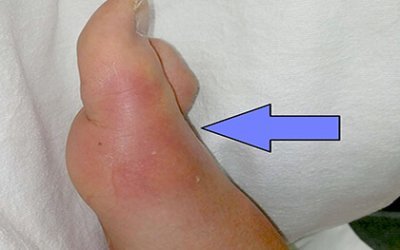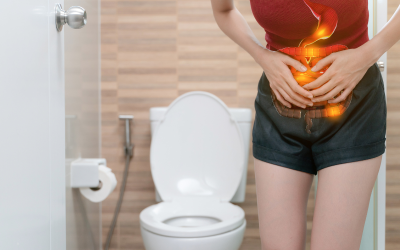Understanding Urine Color: What It Means and When to Worry

The Importance of Urine Color as a Health Indicator
Urine color is more than just a passing curiosity; it’s a vital indicator of your overall health. By understanding what different urine colors signify, you can take proactive steps to maintain optimal health. This article delves into the spectrum of urine colors, their causes, and natural remedies to address any issues, avoiding synthetic drugs and promoting holistic wellness.
1. The Urine Color Spectrum: What Different Shades Mean
1.1. Clear to Light Yellow Urine
Causes:
- Clear to light yellow urine typically indicates adequate hydration and a healthy urinary system.
Natural Remedies:
- Water Intake: Ensure you’re drinking enough water daily. Aim for at least 8 glasses a day.
- Hydrating Foods: Incorporate hydrating fruits and vegetables like cucumbers, watermelon, and oranges.
1.2. Dark Yellow to Amber Urine
Causes:
- Often a sign of mild dehydration, or it may result from consuming certain foods and supplements.
Natural Remedies:
- Increase Water Intake: Drink more water throughout the day.
- Hydrating Fruits and Vegetables: Foods like celery, strawberries, and bell peppers can help.
- Herbal Teas: Drink chamomile or peppermint tea to boost hydration.
1.3. Orange Urine
Causes:
- Possible causes include dehydration, consuming foods with strong pigments, or certain medications.
Natural Remedies:
- Citrus Fruits: Consume oranges, lemons, and grapefruit which aid hydration and detoxification.
- Turmeric and Ginger: These anti-inflammatory herbs can support overall health and urinary function.
1.4. Pink or Red Urine
Causes:
- Can be due to consuming beets, berries, or rhubarb, or it might indicate the presence of blood in the urine.
Natural Remedies:
- Cranberry Juice: Known for its benefits in preventing urinary tract infections.
- Anti-Inflammatory Herbs: Turmeric and ginger can help reduce inflammation.
1.5. Blue or Green Urine
Causes:
- Typically results from certain foods and medications or bacterial infections.
Natural Remedies:
- Probiotics: Consume natural probiotics like yogurt and fermented foods to maintain a healthy urinary tract.
- Natural Detoxifiers: Foods like cilantro and chlorella can help detoxify the body.
1.6. Brown Urine
Causes:
- Severe dehydration, certain foods, or liver conditions.
Natural Remedies:
- Hydration: Drink plenty of water.
- Liver-Supportive Foods: Incorporate milk thistle and dandelion root tea into your diet to support liver health.
1.7. Cloudy or Foamy Urine
Causes:
- High protein diet, kidney issues, or urinary tract infections.
Natural Remedies:
- Balanced Diet: Ensure a balanced intake of proteins and plant-based foods.
- Nettle Leaf Tea: Drink this herbal tea for its kidney-supportive properties.
2. Natural Remedies and Home Treatments for Maintaining Healthy Urine Color
2.1. Staying Hydrated
Staying properly hydrated is crucial for maintaining a healthy urine color. Drink at least 8 glasses of water a day and include hydrating beverages like herbal teas. Foods like cucumbers, watermelon, and citrus fruits also contribute to better hydration.
2.2. Detoxifying with Diet
A diet rich in detoxifying foods helps maintain a healthy urinary system. Leafy greens, cruciferous vegetables, and fruits are excellent for detoxification. Avoid processed foods and excess sugars.
2.3. Herbal Support for Urinary Health
Herbs like cranberry, uva ursi, and marshmallow root are known for their urinary health benefits. Cranberry juice prevents infections, uva ursi acts as a diuretic, and marshmallow root soothes the urinary tract.
2.4. Monitoring and Adjusting Your Diet
Keep a food diary to monitor how different foods affect your urine color. This can help you identify and avoid foods that cause undesirable changes. Focus on a balanced diet rich in natural, unprocessed foods.
3. When to Seek Medical Attention
While natural remedies are beneficial, certain urine colors warrant medical attention. If you notice persistent red, brown, or cloudy urine accompanied by pain or discomfort, consult a healthcare provider immediately.
4. Conclusion: Embracing a Holistic Approach to Urine Health
Understanding urine color and its implications can guide you toward better health. By adopting a holistic approach that includes proper hydration, a balanced diet, and the use of beneficial herbs, you can maintain a healthy urinary system naturally. Always listen to your body and seek professional advice when necessary.
References
- Mayo Clinic. (n.d.). Urine color. Retrieved from Mayo Clinic.
- National Kidney Foundation. (n.d.). What color is your urine? Retrieved from National Kidney Foundation.
- WebMD. (n.d.). Why Is My Urine Orange? Retrieved from WebMD.
- NIH National Library of Medicine. (n.d.). Herbal Medicine. Retrieved from NIH.
Dos
- Stay Hydrated:
- Drink at least 8 glasses of water a day to maintain clear to light yellow urine.
- Eat Hydrating Foods:
- Include fruits and vegetables like cucumbers, watermelon, oranges, and celery in your diet.
- Use Herbal Teas:
- Drink chamomile, peppermint, or nettle leaf tea to support hydration and kidney health.
- Monitor Your Diet:
- Keep a food diary to track how different foods affect your urine color.
- Incorporate Probiotics:
- Consume natural probiotics like yogurt and fermented foods for urinary tract health.
- Consume Detoxifying Foods:
- Add leafy greens, cruciferous vegetables, cilantro, and chlorella to your diet for detoxification.
- Use Anti-Inflammatory Herbs:
- Include turmeric and ginger in your diet to reduce inflammation and support urinary health.
- Seek Medical Advice When Necessary:
- Consult a healthcare provider if you notice persistent abnormal urine colors, pain, or discomfort.
Don’ts
- Don’t Ignore Persistent Changes:
- Do not ignore persistent changes in urine color, especially if accompanied by other symptoms.
- Avoid Dehydration:
- Do not neglect your fluid intake; dehydration can cause dark yellow to amber urine.
- Limit Processed Foods:
- Avoid processed foods and those high in artificial dyes which can alter urine color.
- Avoid Excessive Protein Intake:
- Do not consume excessive amounts of protein, which can lead to cloudy or foamy urine.
- Limit Sugary and Caffeinated Beverages:
- Reduce intake of sugary drinks and caffeine, which can dehydrate the body.
- Don’t Rely Solely on Synthetic Supplements:
- Avoid over-reliance on synthetic supplements that might alter urine color; prefer natural sources.
- Avoid Holding Urine:
- Do not hold urine for long periods; this can increase the risk of urinary tract infections.
- Don’t Ignore Symptoms of Infection:
- Do not ignore symptoms of urinary tract infections like burning sensation or frequent urge to urinate. Seek natural remedies or medical advice.
Send Us A Message
FAQs
- Cloudy or foamy urine can result from a high protein diet, dehydration, or urinary tract infections. Balancing your diet and staying hydrated can help. Persistent cloudiness or foam may require medical evaluation.
- Brown urine can indicate severe dehydration, certain foods, or liver issues. Increasing water intake and consuming liver-supportive foods like milk thistle and dandelion root tea can help. If it persists, seek medical advice.
- To maintain healthy urine color, stay hydrated, eat a balanced diet rich in fruits and vegetables, use herbal teas and probiotics, and avoid processed foods and excess protein.
- Natural remedies can support overall urinary health and address minor issues. However, they should not replace medical treatment for serious conditions. Always seek professional advice for persistent or severe symptoms.














